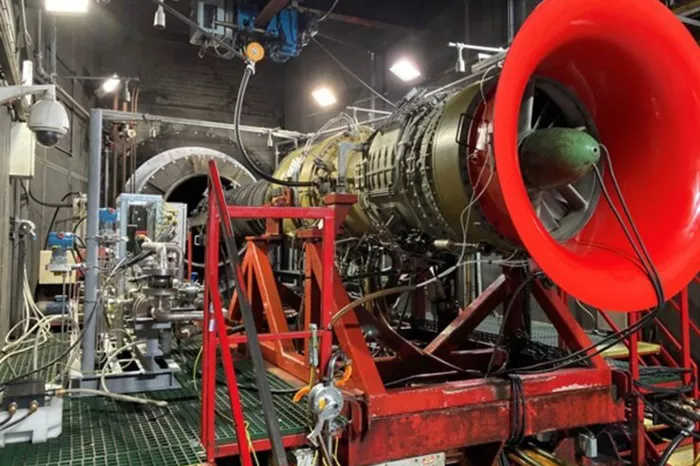The Net Zero Technology Centre (NZTC) and Siemens Energy have achieved a significant milestone by successfully operating an SGT-A35 gas turbine on methanol, resulting in an 80% reduction in nitrogen oxide (NOx) emissions compared to conventional fuels.
This groundbreaking demonstration took place at the RWG facility in Aberdeen, UK, which specializes in maintenance, repair, and overhaul services for Siemens Energy’s industrial aero-derivative gas generators and power turbines.
Originally introduced in the 1970s, the SGT-A35 gas turbine underwent a retrofitting process that utilized advanced 3D printing technology to create new components specifically for methanol fuel conversion. This initiative underscores the potential of retrofitting existing gas turbines to support decarbonized energy operations.
Charlie Booth, project manager at NZTC, emphasized the importance of methanol as a sustainable fuel source. “Methanol’s unique properties make it an exceptional choice as a retrofittable, low-carbon alternative fuel,” he stated. “This demonstration showcases the opportunities that exist in adapting existing infrastructure to meet our net-zero targets and energy needs.”
The demonstration is part of NZTC’s Alternative Fuel for Gas Turbines project, one of seven initiatives under the Net Zero Technology Transition Programme (NZTTP). This latest achievement builds on earlier efforts from 2023, when NZTC and Siemens Energy successfully tested a less powerful SGT-A20 turbine using bio-methanol, demonstrating a potential 75% reduction in CO2 emissions compared to traditional fuels.
One of the significant advantages of methanol as an alternative fuel is its versatility in production. It can be derived from various feedstocks, including blue methanol, which utilizes carbon capture and storage, as well as bio-methanol and green hydrogen combined with captured CO2 (e-methanol).
Methanol produced from natural gas can decrease CO2 emissions by 10% compared to conventional liquid fuels, while renewable methanol can achieve a remarkable 95% reduction. Additionally, methanol significantly lowers other harmful emissions, including NOx, particulate matter (PM), sulfur dioxide (SO2), and smoke, making it a promising option for future energy needs.
Related topics:
- Modine Appoints Dan Hedstrom as New Chief Information Officer
- Baudouin Unveils Custom Diesel Generator Sets for Data Centers
- Volvo CE Reports Strong Q3 Margins Amid Market Challenges

